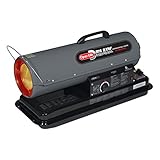Can I Use Diesel in a Kerosene Heater?
Thanks to Kerosene Heater, we get to enjoy warmth during those cold winter days. These heaters have been around for many years now, yet their improper use can lead to serious problems. Presently, there are millions of units in use, but because of improper use or failure to replace or repair the units, there are many accidental fires caused by these.
The following is an example: A homeowner has installed his kerosene heater and uses it regularly. After several months he notices that the flame on top of the unit seems dimmer than usual. The next day when he goes out to check if everything is okay, he finds that the entire house is filled with smoke. When he opens the door to leave, he sees flames coming from underneath the floorboards near where the heater was located. Fortunately no one got hurt, but this could easily be avoided had he checked the unit before leaving home.
This incident happened due to improper maintenance or replacement of parts which led to fire hazard. If you want to avoid such incidents then make sure your heater is well maintained at all times. In addition, never try to start a fire using any type of fuel other than diesel oil as doing so may result in explosion. We will discuss some important points regarding proper usage of kerosene heaters below.
Best Seller Of Kerosene Heater
Kerosene Heaters – What You Should Know!
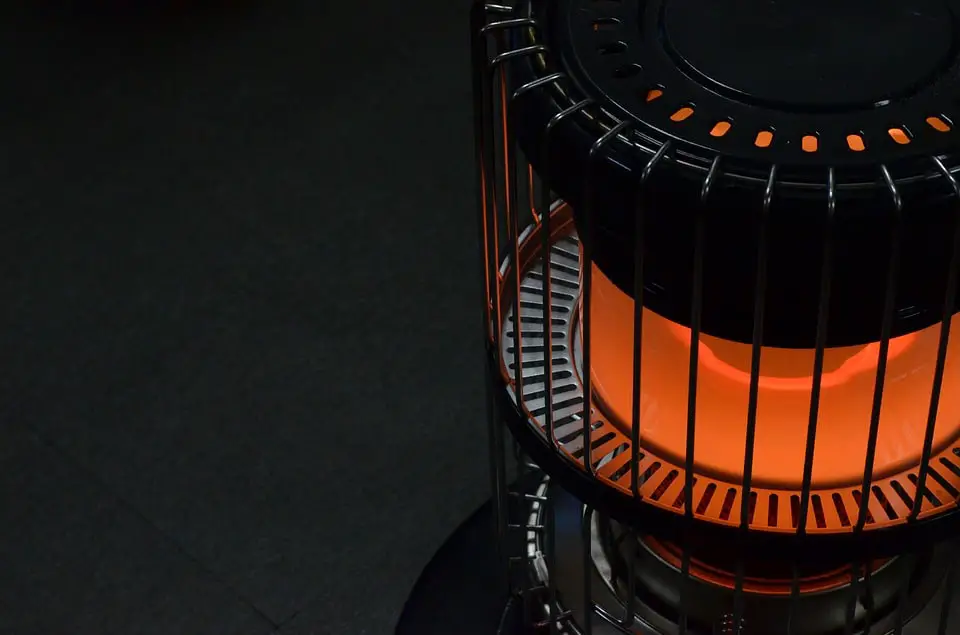
Proper Use Of A Kerosene Heater
After buying a new kerosene heater, what do you do next? Take the heater out of the box along with the warranty and instruction manual, both of which you should keep safe for future use as well.
If the manual is in a foreign language, it's recommended to have someone explain to you how the particular model of heater works, at least for the very first time. To help you out, here are some basic guidelines:
Get Your Kerosene Supply
Remember that this is a kerosene heater, not a diesel or gasoline heater, therefore, you must buy kerosene. Never use gasoline or diesel, otherwise, you suffer the consequences.
It's important to use kerosene that's no more than three months old. If you have leftover kerosene from a few months ago, don't use it as this might damage your heater or worse, start a fire.
You can purchase kerosene in most gasoline stations or in some home improvement or home goods stores. Keep it in a storage container that is exclusively for kerosene.
Store The Kerosene Properly
You shouldn't keep your kerosene outdoors. Keep it in a storage closet that's well-ventilated and away from the elements and away from your home.
Fill The Tank
Some models have a removable tank for the fuel. Make sure you have turned off the heater before filling or refilling the tank. Also, make sure it has already cooled down completely since you turned it off.
Prepare some paper towels or rags, a bucket, and a siphon pump. Remove the tank and bring it outside with the jug of kerosene. You won't have to breathe the kerosene fumes when you fill the tank outdoors or worse, spill some of the stuff on your floor.
Practice Safety
After filling, place the tank inside your heater. Wait about two minutes or so to let the kerosene enter the heater before starting. Remember that the heater heats you up, it's not a dryer where you put your wet clothes underneath. If you have to, get a portable clothing rack and place this at least one meter away from your heater.
Turn On The Heater
Like many machines already in your home, kerosene heaters also have an "off-on" button. Some heaters can play music to inform you that it has already heated your room to the temperature you desired.
You can then press a button to keep it on or turn it off. Others have on their displays the current temperature of the room. You can adjust either to decrease or increase the temperature by using the + or - buttons.
How To Properly Maintain Your Kerosene Heaters?
As mentioned earlier, kerosene heaters produce high amounts of carbon monoxide gas. Hence, it is very essential to maintain them properly.
One way to achieve this is to install a CO alarm kit along with the heater. The kit comes equipped with an audible warning mechanism which alerts people when there is excessive level of carbon monoxide present in the room.
Another option would be installing a smoke detector on top of the heater. Smoke detectors have been designed specifically to detect fires caused by faulty wiring or overheating of wires. Thus, if either of these options fail to alert anyone about the presence of dangerous fumes, then it means something has gone wrong with the heater itself.
The next most common problem associated with kerosene heaters occurs during winter months. During cold weather, the temperature drops down significantly causing condensation to form around the chimney. Condensed moisture collects within the chimney resulting in blockage of air flow. When this happens, the flame gets extinguished and thus making it impossible to light up the heater again until the chimney is cleared out. For this reason, it is recommended to check the condition of the chimney regularly and clear away accumulated debris.
If you use kerosene heaters often, then it becomes necessary to replace their wick periodically. A new wick ensures better performance of the heater. Moreover, old wicks tend to get brittle over time leading to breakages. So, it is highly advised to buy new ones instead of replacing them.
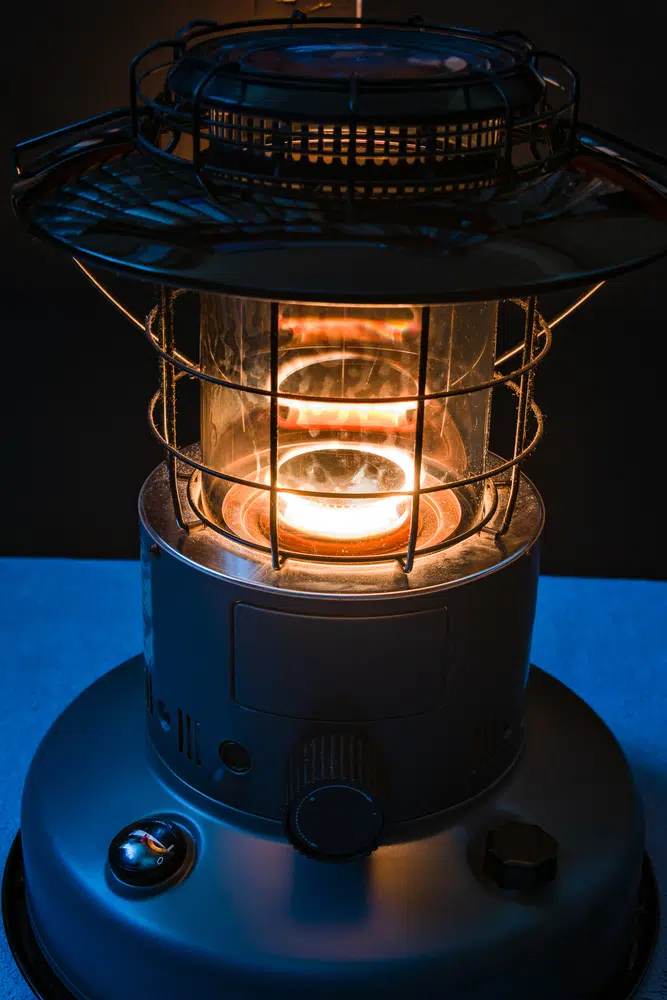
Some Safety Precautions That Need To Be Taken
As we discussed above, kerosene heaters pose several health hazards including carbon monoxide poisoning. In order to avoid such risks, one needs to take certain precautions while using them.
- Never leave children unattended near any type of fuel-burning appliance like kerosene heaters.
- Ensure that no other person uses the heater without first turning it off.
- Make sure that your home does not contain flammable materials. If possible, try to remove combustible items from close proximity to the heater.
- Don’t let pets sleep inside the house as they may inhale toxic gases emitted by the heater.
- Make sure that the area where the heater is installed is well ventilated so that harmful gasses are released outside.
Other Safety Tips To Keep In Mind
Here are more safety tips to follow when using a kerosene heater:
- The primary and most significant thing to remember is to perform the refilling of your kerosene heater outside. Turn the heater off, carry it outside your house, and refill it there.
- Never store the kerosene container in the same room where you use the heater. Keep your supply in the shed, a trash can or a small enclosure placed away from or outside of your home.
- Make sure that you don't turn on the heater until you're done cleaning or removing any fuel spillage. Also, you should have already properly ventilated the room before turning on your heater. This should be strictly done, especially if the spillage occurs inside the home.
- Aside from carbon monoxide, burning kerosene also produces sulfur dioxide and nitrogen dioxide. These gases may potentially cause eye and lung irritations.
- Use rubber gloves when filling your tank because kerosene fuel might also cause irritation on your skin.
- 1-K grade kerosene is required for Kerosene Heater. Kerosene other than 1-K grade can cause damage.
The Common Questions About Kerosene Heater With Diesel
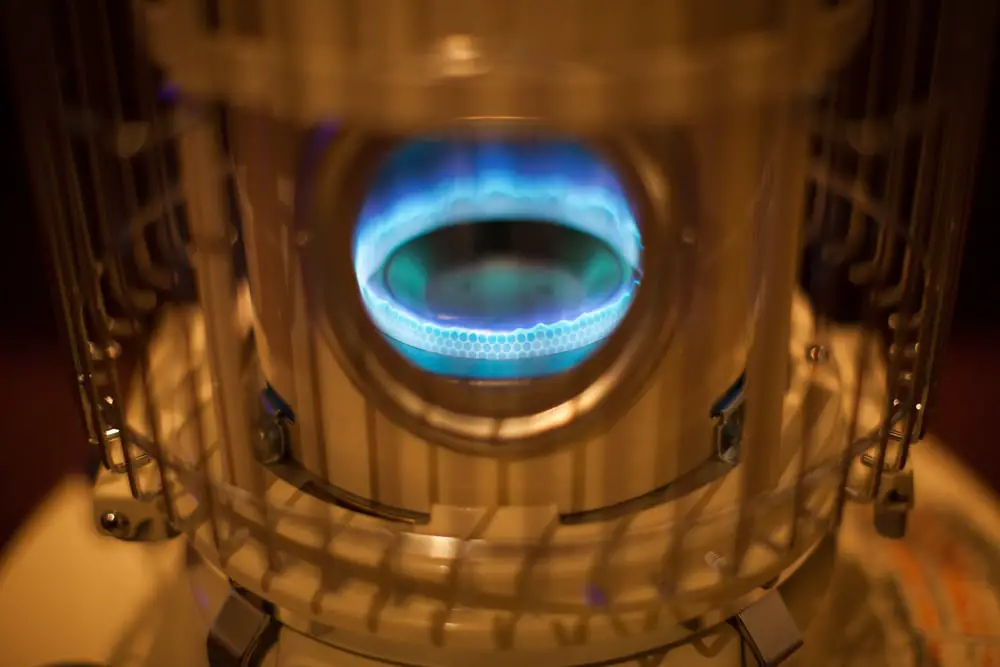
Can I Use Diesel In A Kerosene Heater?
Diesel can be burned in a kerosene heater, but you have to take some steps.
- In each liter of diesel, mix 5 liters of isopropyl alcohol with it.
- Only use a high-quality cotton wicks.
It is possible to use isopropyl alcohol, diesel fuel additives, or straight kerosene. Diesel fuel additives are recommended.
Propane is also another alternative for heating purposes. It has many advantages compared to kerosene. For example, propane burns cleaner than kerosene. Propane is less expensive than kerosene. And finally, propane is safer than kerosene.
The Alternative method: Mix kerosene and diesel in a 1:3 to 1:5 ratio.
What Are The Advantages/Disadvantages Of Using Diesel Instead Of Kerosene?
Kerosene is more expensive than diesel. It costs approximately $1 per gallon compared to $0.50 per gallon for diesel. Also, kerosene tends to produce smoke which makes it difficult to see when lighting up the stove. On the contrary, diesel produces very little smoke and gives an even distribution of heat throughout the room.
One more, you can easily get diesel from any gas station that sells it and put it in your oil tank if you run out of heating oil.
Why Shouldn't We Burn Kerosene Instead Of Diesel?
Burning kerosene releases poisonous gas called Carbon Monoxide. This gas has been known to cause severe headaches, dizziness, nausea, vomiting, unconsciousness, coma, and death. Therefore, burning kerosene indoors is dangerous.
Burning kerosene outdoors will release fumes into the air causing pollution. Using kerosene requires additional effort on our part because we have to keep refilling the container every few days.
Is There Any Other Fuel Which Can Be Used For Kerosene Heaters?
There are many alternative fuels available today that can be used for heating purposes. These include natural gas, electricity, wood pellets, coal, oil, biofuels, solar energy, geothermal energy, waste products, hydrogen, methane, ammonia, and others. Each of these alternatives offers its own set of benefits and drawbacks. The best option depends upon what kind of environment you live in and how much money you want to spend.
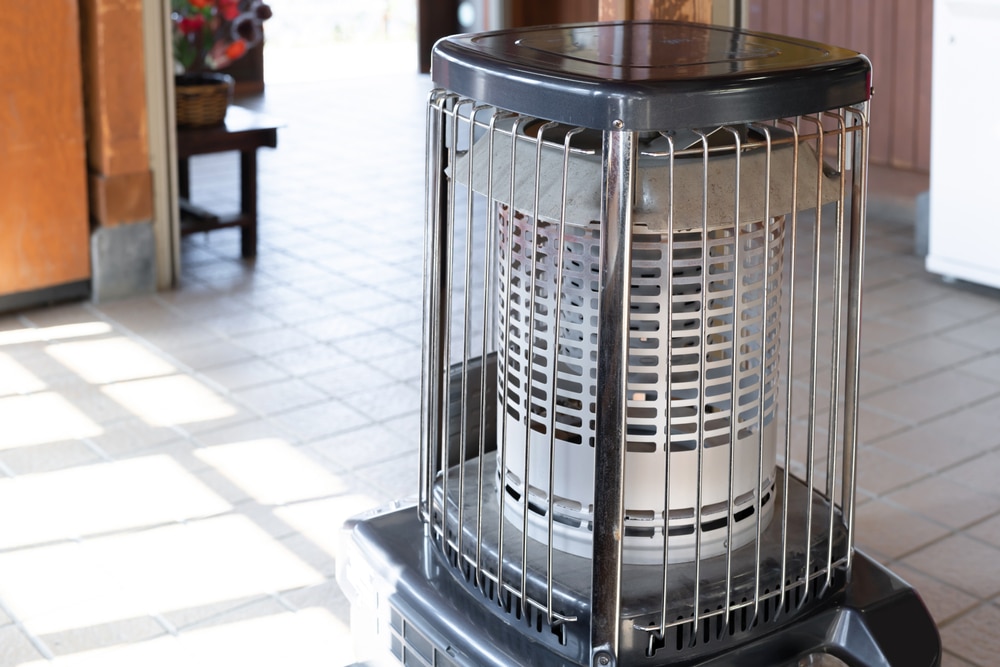
What Is The Dangers Of Using Diesel In A Kerosene Heater?
A kerosene heater draws off or wicks up the kerosene. This makes it evaporate and burn. Diesel fuel can also wick, but it doesn't evaporate well. This is one reason why there are no carburetors that use diesel fuel. Here are some of the dangers you should know if you use diesel fuel in your kerosene heater:
- If you pour diesel fuel on the ground and throw a lit match on it, the fuel won't ignite. To make it burn, you have to spray it into very small droplets or a fine mist. This is the reason why almost all diesel is fuel-injected. With diesel, you burn the wick that isn't meant to burn. Another thing to consider is the particles released in the exhaust when you burn diesel. These are toxic and might end up causing you a lot of harm.
- With kerosene, it burns fairly clean while diesel doesn't. The only time it can burn the cleanest is with compression ignition since this happens outside of the engine. Some consider burning diesel indoors as your heat source a very slow type of suicide.
- Also, when using a kerosene heater, there will be a minute amount of carbon monoxide created. This, of course, is extremely toxic. Therefore, when you use a kerosene heater, make sure that there is plenty of air coming into the space you're heating. Carbon monoxide can be dangerous for you because it replaces the oxygen in your blood. Carbon dioxide also becomes dangerous when it replaces the oxygen in the air.
Despite all of these warnings, you can still, for the most part, feel happy owning a kerosene heater. All you have to do is to follow these safety instructions to the tee. You can treat it as though it is your own wood-burning stove or fireplace.
Conclusion
Having one will serve as an excellent source of emergency or supplemental heat when such situations arise. Since this type of heater is usually portable, you can bring it along when you go camping or use in buildings like sheds or barns. It's easy to operate and maintain. In addition, they don't require any special skills to install them. They come in different sizes depending on their purpose. If you plan to buy one, then you'll find that they cost between $50 - $100 each.






